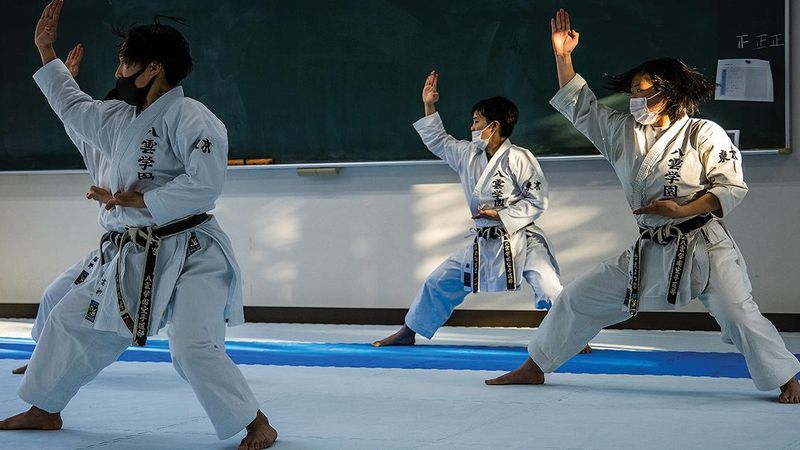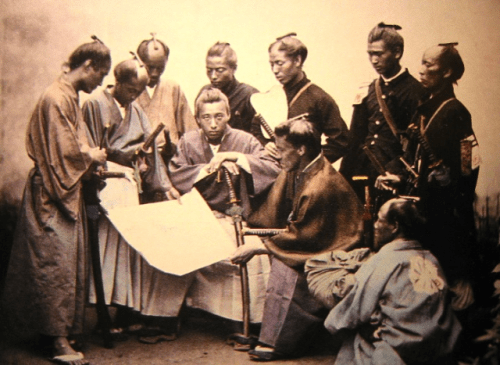Delve deep into the fascinating world of Karate, an ancient martial art that has left an indelible mark on global culture. A discipline that emerged from the simple need for self-defense has grown into an integral part of the cultural fabric of societies worldwide. This journey into the traditions and influences of this millennia-old martial art will offer an in-depth look at how Karate has shaped and been shaped by various cultures across the globe. Discover the profound cultural significance and the global impact that this martial art holds.
Immerse yourself in an exploration of Karate’s roots, its evolution, and its profound impact on cultures worldwide. From its humble beginnings on the Japanese island of Okinawa to its global spread and recognition as an official Olympic sport, the journey of Karate is a tale of tradition, perseverance, and cultural exchange. This piece will illuminate how Karate’s philosophy transcends mere physical combat, embodying principles of respect, discipline, and spiritual growth, and how these principles have resonated with people globally.
Venture further into how the cultural export of Karate has influenced popular culture, from cinema to sports and beyond. The global impact of Karate is undeniable, with its influence visible in myriad ways. Through this exploration, you’ll grasp how Karate, far more than a form of self-defense or a competitive sport, has become a cultural phenomenon that bridges gaps between nations and cultures. So, brace yourself for a deep dive into the rich and global tapestry of Karate: an exploration that promises to be as enlightening as it is exciting.
The Cultural Influence of Karate
In examining the cultural influence of Karate, it’s vital to comprehend that this martial art has a rich history that spans over centuries, with roots deeply embedded in Japan. The practice of Karate developed from the synthesis of indigenous Ryukyuan martial arts and Chinese Kenpō, reaching its present form in Okinawa in the late 19th and early 20th century. Karate is more than just a form of self-defense; it’s a way of life, instilling values of discipline, respect, and humility.

Role in Japanese Culture
In Japan, Karate is more than just a martial art; it is a cultural heritage. It is an integral part of Japanese culture and plays a significant role in promoting discipline, self-improvement, and health. The emphasis on spiritual development, character-building, and moral values that Karate promotes are seen as beneficial to society as a whole.

Influence Outside Japan
Karate’s influence extends well beyond Japan’s borders. The martial art has seen a global spread, especially in the West, where it was introduced in the 20th century. Its cultural impact can be seen in various facets of Western society, from popular culture, such as movies and television shows, to its adoption in self-defense classes and even in school curriculums.
The Global Impact of Karate
The global spread of Karate can largely be attributed to Gichin Funakoshi, who introduced the martial art to mainland Japan in the early 20th century. Since then, Karate has spread to every corner of the globe, establishing itself as one of the most recognized and practiced martial arts.
Karate in the Olympics
One of the most significant global impacts of Karate was its inclusion in the Tokyo 2020 Summer Olympics, where it was recognized as an official sport. This was a historic moment for Karate, placing it on the global stage and validating its status as a legitimate sport.
Popularity in the West
Karate’s popularity in the West grew exponentially in the latter half of the 20th century, largely fueled by popular culture. Iconic movies like The Karate Kid and TV shows such as Cobra Kai have greatly contributed to Karate’s appeal and global recognition.
Exploring Karate Traditions
Karate traditions are deeply rooted in its practice. The martial art’s etiquette, rituals, and philosophy have been preserved and passed down through generations.
Kata: The Form
One of the most notable traditions in Karate is the practice of Kata. This refers to a set sequence of moves that represents a simulated fight. The performance of Kata is not just about physical prowess, but also mental concentration and understanding of the principles behind the moves.
The Dojo: The Training Hall
The Dojo, the place where Karate is practiced, is a sacred space. Traditional Dojos follow a strict code of conduct, with students showing respect to the space, their sensei (teacher), and each other.
The Influence of Karate on Other Martial Arts
Karate’s influence extends beyond its practice to other martial arts. Its techniques, philosophies, and traditions have informed the development of several other martial arts.
Influence on Taekwondo
Taekwondo, the national sport of South Korea, has been heavily influenced by Karate. Many of its techniques, particularly its striking techniques, have been borrowed from Karate.
Influence on Mixed Martial Arts
Karate has also had a significant impact on Mixed Martial Arts (MMA). MMA fighters often incorporate Karate techniques into their repertoire, and some, like Lyoto Machida, a former UFC Light Heavyweight Champion, have a background in Karate.
In conclusion, Karate’s influence is deeply woven into the fabric of both Eastern and Western cultures. Its global impact is seen not only in its wide practice but also in the influence it has had on other martial arts and its recognition in international sporting events like the Olympics. The traditions of Karate continue to be respected and upheld, preserving the martial art’s rich history and cultural significance.
Conclusion
In conclusion, the cultural and global impact of Karate is undeniable. As a martial art rooted in rich traditions and deep philosophies, it has transcended borders and generations, transforming lives and societies. Originating from the small Okinawan islands, Karate has spread worldwide, demonstrating the power of cultural exchange and global influence. It has become an essential part of many people’s lives, fostering discipline, respect, and resilience, proving that it is more than just a physical activity.
Furthermore, the global recognition of Karate, highlighted by its inclusion in the Tokyo 2020 Olympics, signifies its substantial influence on the world stage. It reflects how the world appreciates the martial art not only for its physical aspects but also for its mental and spiritual values.
Moreover, Karate’s influence is evident in various aspects of popular culture, notably in films, literature, and even video games. These mediums have been instrumental in promoting Karate and its philosophy to a broader audience, enhancing its cultural significance and global reach. Therefore, the journey of Karate, from its humble beginnings to its global phenomenon, is a testament to the enduring power and appeal of this ancient martial art. 🥋🌍🏅
